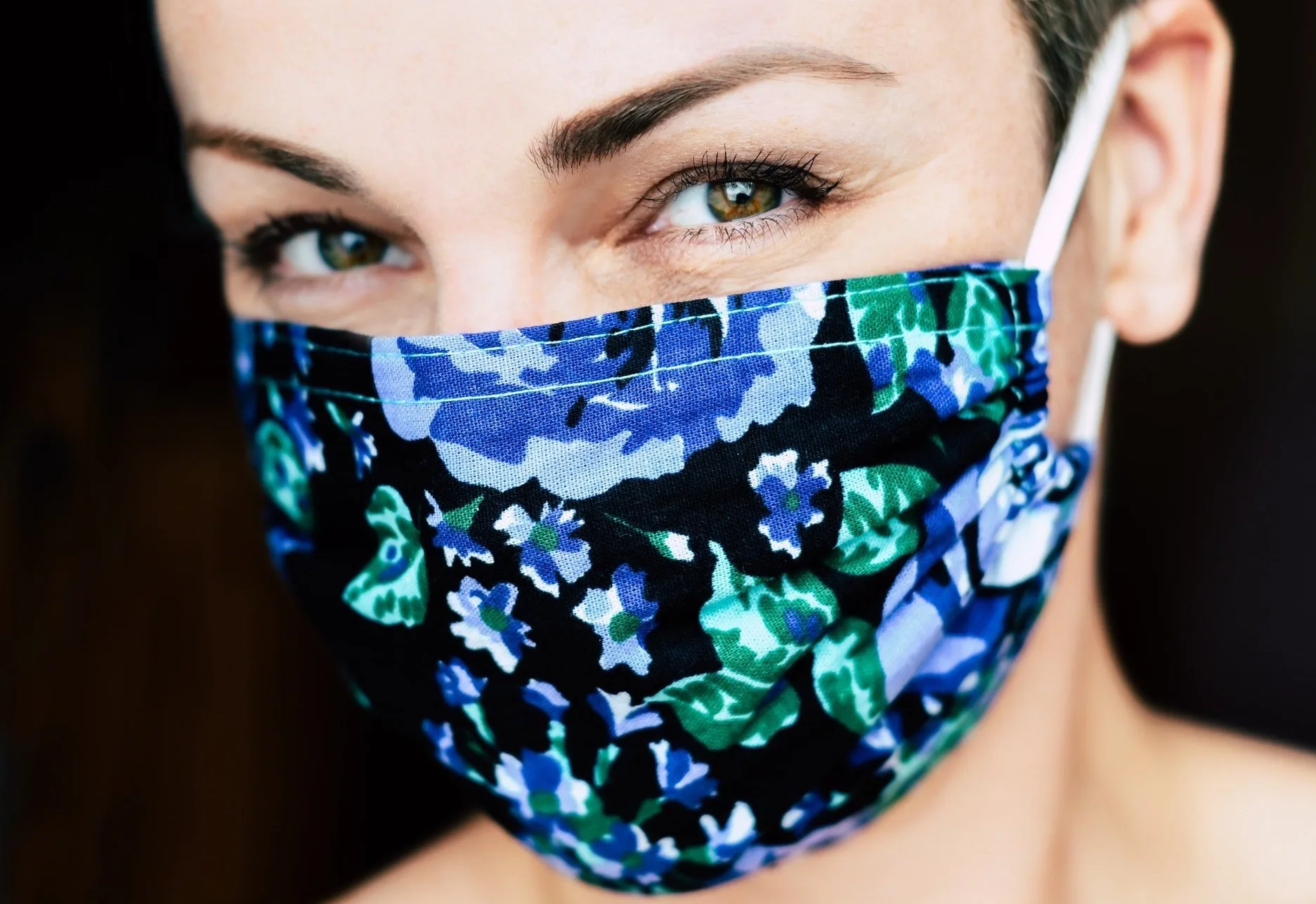The Covid-19 pandemic has made the whole planet far more aware of their breathing. For many, this has caused a great deal of fear and anxiety. The virus itself attacks our respiratory system making it hard to breathe – and when breathing feels limited, difficult or scary, so does everything else. Here’s how to make your face mask your breathing friend and filter. By Dr Philippa Wheble and Dr Ela Manga
How You Breathe
The way we breathe can affect our physical, mental, and emotional well-being, and conversely these states can also change how we experience our breath. It’s well documented that chronic stress, anxiety, our posture, and movement can all impact the mechanics and chemistry of our breathing. Conscious breathing practices support us to become aware of our breathing behaviors. Then we can shift them, empowering us to shift our mental and emotional states.
Many people are expressing concern about the impact of mask wearing on optimum breathing and thus on their physical and mental health. Mask wearing is now becoming mandatory in public spaces and in the work environment in many countries to curb the spread of the Coronavirus. This article aims to discuss these concerns and to offer a conscious approach to breathing in relation to mask wearing.
Why should I wear a face mask?
Covid-19 is spread through respiratory droplets. Breathing, speaking, singing, laughing, coughing, or sneezing can all push the virus into the air. In the air, the virus can travel around one metre. Further if you’re moving fast, coughing or sneezing, dropping or settling on anything with which it comes into contact. We know that we can get the virus on our hands by touching infected surfaces. We can also transfer the virus between surfaces by touching them with our contaminated hands. This is why we are all washing our hands and being mindful about the things that we touch.
A large percentage of people who are infected with the virus are asymptomatic and not aware that they are infectious. The rationale for wearing a mask in public is to curb the spread of the virus by preventing you from spreading it to other people. Wearing a mask also prevents you from touching your nose or mouth and infecting yourself with the virus that you may encounter while out and about.

What is the concern about wearing a face mask?
There have been numerous reports in the media from people claiming feelings of dizziness, fatigue and headaches while wearing a mask. While this phenomenon has not been formally researched, there could be various reasons for this.
Why might I get symptoms while wearing a face mask?
The ideal mask will allow for the easy flow of air. In other words, be breathable, but also prevent the spread of droplets through it (impermeable).
If your mask does not allow air to flow through it, this could have negative effects on your health and well-being.
But there are other reasons why you might get symptoms while wearing a mask.
- Wearing any mask can trigger a feeling of not getting enough air and cause you to breathe differently.
- If you are concerned about being outside and being at risk of getting the virus, you might breathe differently.
- You may be anxious or stressed, you will breathe differently.
- In the event you HAVE the virus, you will breathe differently.
Typically, when we are worried or anxious, adrenaline causes us to take faster and shallower breaths. This leads to lower levels of carbon dioxide in the blood which in turn can cause dizziness, fatigue, headaches, chest pain, breathlessness, numbness and tingling, a feeling of disorientation or confusion, and increased emotionality.
If your mask is adequately breathable, it is more likely that symptoms experienced are related to your own breathing rather than the mask itself.

Does my face mask limit the amount of oxygen I get?
Medical grade masks are specifically designed to offer high level protection (impermeability) and adequate oxygenation (breathability) while undertaking highly skilled and high-risk tasks. While the public does not require medical grade masks, manufactured and home-made masks should offer the same level of breathability and reasonable impermeability.
A recent study done in Illinois demonstrated that a mask made with double layered T-shirt material (cotton or cotton/polyester blends) balances the best breathability with a 98% impermeability to droplet spread which performs equally to medical masks.
The only difference is that household materials will retain droplets rather than repel them, so it is important to hot wash (or dispose of) them after each use.
Should I breathe through my nose or my mouth when wearing a mask?
Breathing through the nose provides the benefit of the air being moistened and filtered. Nasal breathing also produces Nitric Oxide which kills viruses and bacteria.
Breathing through the nose is preferable when wearing a mask.
How can I optimize my breathing while wearing a face mask?
Mask wearing can be great training for conscious breathing. Take this opportunity to be mindful of your breathing, seeing the mask as an extra filter.
1. Breathe through your nose.
2. Notice how your breathing is changing in reaction to your experience and environment. Consciously take slower and deeper breaths if you feel overwhelmed.
4. Add a drop of essential oils such as peppermint or orange to keep your airways feeling open. This will also bring sensory enjoyment.
5. When you take your mask off, spend a few minutes taking some fully conscious breaths. Or you can practice the box breathing technique to bring calm energy and balance back to your system.
References:
Discomfort and Exertion Associated With Prolonged Wear of Respiratory Protection in a Health Care Setting Brian V Shenal 1 , https://pubmed.ncbi.nlm.nih.gov/22168256
About the Authors

Dr. Ela Manga is an integrative medical doctor and leading voice in the field of mind-body medicine. She has dedicated her career to using breathing as medicine and as a tool for personal growth and transformation. Ela is a sought-after speaker, both locally and internationally, and has a revolutionary way of facilitating groups for profound transformation. She is the founder of Breathwork Africa and author of BREATHE: Strategizing Energy in the Age of Burnout. She lives and works in Johannesburg, South Africa.

Dr. Philippa Wheble is a medical doctor, specialising in General Practice and Performing Arts Medicine in the UK and is a Certified Transformational Breath Facilitator and TrainerTM. She is dedicated to the science and research of conscious breathing modalities and to improving breath work education. Pippa is an international lecturer and public speaker, passionate about promoting mental health and resilience through conscious breathing. She is creating scientific articles and an online anatomy and physiology course for Breath workers to support best practice in this evolving profession.
© Dr Philippa Wheble and Dr Ela Manga, 2020





![women [longevity live]](https://longevitylive.com/wp-content/uploads/2020/01/photo-of-women-walking-down-the-street-1116984-100x100.jpg)









